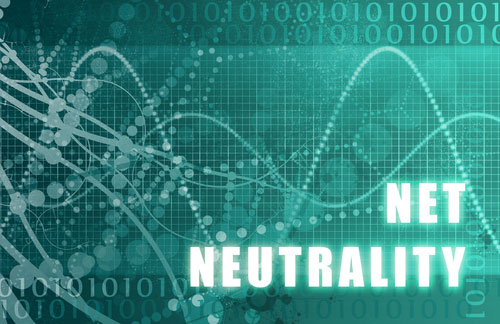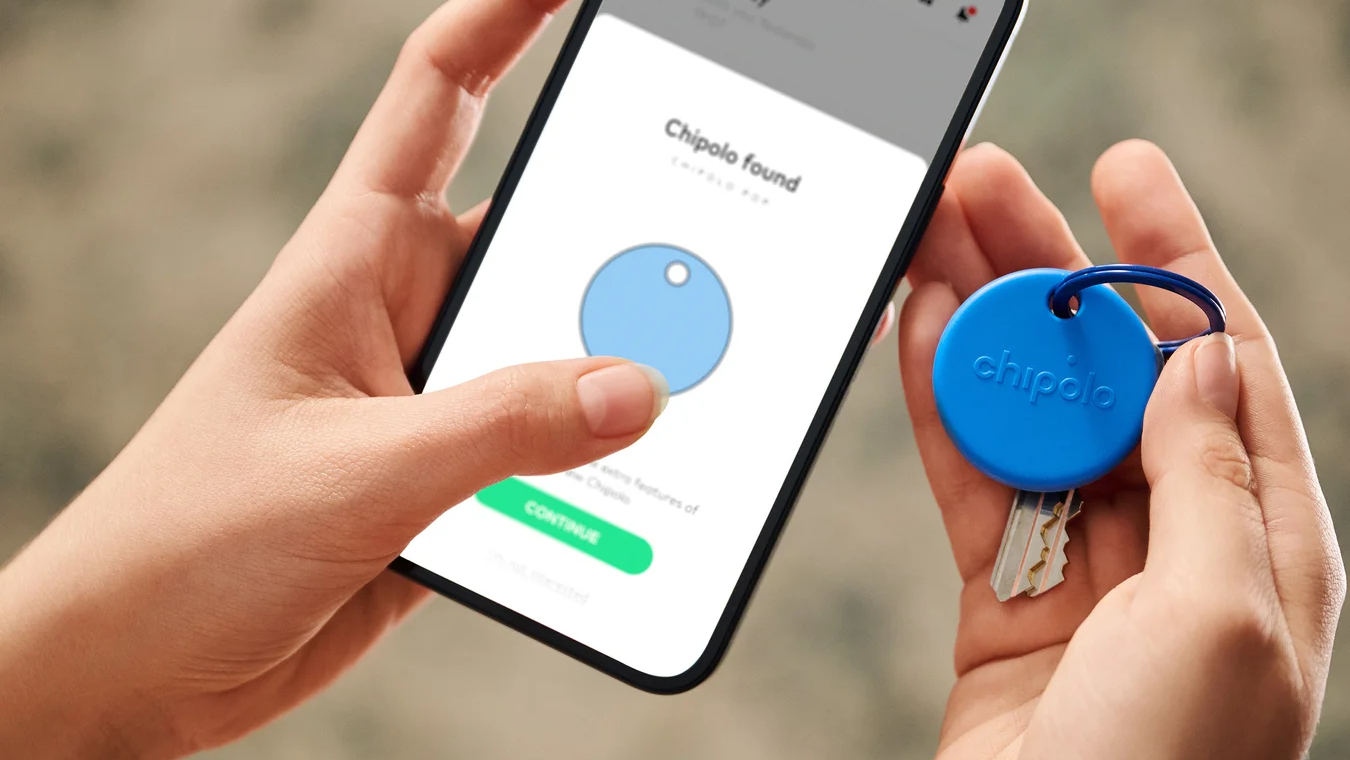How Verizon's Lawsuit Could Kill Netflix, YouTube
A court ruling may soon end 20 years of 'net neutrality.' Here's how that would change the Internet as we know it.

The nation's second most powerful court is poised to decide whether Internet service will go the way of cable TV, resulting in a system in which users may have to pay extra to receive content from online services such as Netflix, iTunes or YouTube.
In 2010, the Federal Communications Commission (FCC) issued its Open Internet Order, codifying net neutrality and barring Internet service providers (ISPs) from controlling the data flowing over their networks. Verizon Communications quickly sued the FCC, arguing that the commission had no authority over the Internet.
Verizon filed its lawsuit in the U.S. Court of Appeals for the District of Columbia Circuit, which handles most cases involving federal agencies and, as a result, has the most influence of any appellate court below the U.S. Supreme Court. Oral arguments in the case were heard in September of this year, and the D.C. Circuit court is expected to hand down its decision in the next few months.
MORE: 10 Best Ad Blockers and Privacy Extensions
The lawsuit hinges on the thorny question of just how much oversight, if any, the FCC has over broadband networks and ISPs. However, the core issue at hand centers on the question of net neutrality — whether the Internet should be the same for all users, or whether ISPs should have full control over what users can see or do online.
If the court sides with Verizon, how users access the Internet, and what they do online, will be irrevocably affected.
"Anyone who connects to the Internet, in one way or another, will be impacted" by the decision, security analyst McCall Paxton of Indianapolis-based Rook Consulting told Tom's Guide.
Sign up to get the BEST of Tom's Guide direct to your inbox.
Get instant access to breaking news, the hottest reviews, great deals and helpful tips.
What is net neutrality?
The tricky thing about net neutrality, Paxton said, is that it's not an engineering term, but rather a political term that means different things to different people, making it difficult to define consistently.
In simplest terms, net neutrality is about treating everyone on the Internet equally, so that users can access all online content and services from any device and any application without any restrictions or limitations from their fixed-line ISPs.
This isn't a new concept — this is currently the way the Internet works. The FCC's 2010 order simply added rules emphasizing that landline ISPs have to continue providing users with neutral networks. (Mobile data providers have a looser set of rules.)
The rules state, for example, that ISPs cannot block traffic to video-chatting applications in favor of other applications, restrict bandwidth when users access torrent or other peer-to-peer sites or charge extra for streaming content such as Hulu or Pandora.
The appeals court could go many ways with its decision in Verizon v. FCC. The court might choose to strike down some, or all, of the net neutrality rules on the grounds that the FCC lacks authority to impose such rules.
It might also cite legal precedent that suggests the FCC already has the authority, but just hasn't explicitly claimed it, which would reject Verizon's argument. It’s also likely that a decision that favors one side over the other will be appealed to the U.S. Supreme Court.
Regardless of the court decision, said Josh Levy, a director at the Washington, D.C., advocacy group Free Press, it is increasingly becoming clear that if the FCC wants to protect net neutrality, it needs to reclassify broadband and mobile networks as "common carriers." These are public utilities, such as the telephone network, that everyone needs and that can be regulated by the government.
A world without net neutrality
No ISP has said outright what it would do if net neutrality rules were struck down, but it's clear from statements made in the past that some ISPs believe they should have the authority to control how users use the ISPs' networks to access online content.
One scenario envisions that ISPs would offer customers "basic" plans to access common sites and applications, and then package access to other services, such as video streaming or VoIP telephone services such as Skype, as part of more expensive "premium" plans, similar to what currently happens with cable TV networks.
YouTube, ESPN.com and Netflix may become parts of premium Internet services, much in the way HBO and Showtime are considered premium cable channels, Paxton suggested.
MORE: Best Shows on Netflix, Hulu, Amazon and YouTube Nov. 2013
In another scenario, ISPs could tell online businesses that they could pay extra for certain services the ISPs might want to offer them. The ISPs could speed up network connections so that end users load those businesses' sites or services faster. Conversely, those online services who haven't paid extra might experience poor network performance.
The end of net neutrality could also mean that ISPs imposed a bandwidth cap, requiring streaming services to pay more for additional data-transfer speed. Those extra costs would eventually be passed onto the consumer, Paxton said.
These speculative scenarios are not far-fetched. Paxton said that Verizon, AT&T, Comcast and other ISPs have been searching since 2005 for ways to change how they charge companies and users for Internet access.
There have even been instances in which AT&T tried to restrict Apple's FaceTime video-chatting application on its AT&T Wireless cellular data networks, Paxton said, or in which Comcast cut back network speeds for peer-to-peer sites.
"People want to be able to just use the Internet," Paxton said. "They don't want to pay extra for devices or applications."
ISPs have argued that net neutrality is ultimately unfair to end users, because big Web companies such as Yahoo, Netflix, and Google can grow and build up profits, while consumers are left footing the bill for the resulting necessary Internet infrastructure expansion.
Customers, the ISPs argue, should be allowed to pay for just the kind of Internet they want, and not for services and applications they never use.
Providers such as AT&T would like to allocate a certain portion of their networks to streaming video and VoIP, so customers who have purchased those services will get great performance. Taking away net neutrality rules would allow ISPs to roll out these kind of priority services, which would benefit users.
The flip side, of course, is that "regular" Web users could see a degradation in service as their portions of the networks become congested.
During oral arguments in the case, Levy said, Verizon claimed a First Amendment free-speech right to curate what kind of content is transmitted across its broadband networks.
"Verizon believes it should be able to edit the Internet, much like the way a publisher has control over a newspaper," Levy said.
Follow us @tomsguide, on Facebook and on Google+.
Tom's Guide upgrades your life by helping you decide what products to buy, finding the best deals and showing you how to get the most out of them and solving problems as they arise. Tom's Guide is here to help you accomplish your goals, find great products without the hassle, get the best deals, discover things others don’t want you to know and save time when problems arise. Visit the About Tom's Guide page for more information and to find out how we test products.
-
bambiboom Gentlemen?,Reply
I believe that future historians of technology will place the Internet in the same category as the invention of the printing press. When books were produced in mass rather than as unique works of art, the world was unlocked, and the resulting communication made history, science, technology, philosophy, art, literature, and entertainment available where and to whom it had never before gone. Would democracy ever have existed without printed books?
And, the Internet is the printing press gone to light speed, allowing access to information that has changed the World, a kind of mega-democracy, one place of a reasonably untextured, level playing field.
The impending case is, by the self-interested parties, today made to seem a simple idea of moderate controls and a reasonable charging more for more services, but it's the tip of the iceberg and seven-eighths of the long-term intention is unseen. If the FCC is judged to not have regulatory standing, the floodgates are open and the Internet will be in effect privatized and at the whim of a few companies with Billions of $ waiting to tell you what you can see, what you can say, and to whom, what you should feel, think, and buy, and then charge you extra for the privilege of being part of their private techno-herd.
If the Internet is sublimated to the greed machine, it's whole foundation, the whole idea of the floating maelstrom of ideas will fall to censorship, micromanagement, monitoring, and complex, inflated billing that will make us all frightened of the access and expression that has changed the World.
We've seen historically, the results of the burning of books, let's not let five corporations burn the Internet.
Cheers,
BambiBoom
- Gosh! As soon as I typed this, my Internet speed just dropped from 130 to 17Mb/s! -
spentshells Pay more for what you already pay to much for. This should go over well with the consumer, I can see it now.Reply
Verizon, Comcast and ATT feel they have to many customers? Someone will come in and fill your shoes no matter how big your feet are. -
knight_of_baawa "Customers, the ISPs argue, should be allowed to pay for just the kind of Internet they want, and not for services and applications they never use."Reply
Given that many ISPs are CableCos/offer TV, why don't they take that argument and look at themselves? Why aren't they offering a la carte TV channels? -
mforce2 I do believe something is really wrong with ISPs in the USA.Reply
First of all their services just suck big time and they're also expensive.
Instead of fixing their problem with the infrastructure so their networks will work better for everyone and anything they're not thinking of ways to hide their incompetence and greed.
In other parts of the world including in Romania where I live the internet is cheap ( $10-20 ), fast ( >100 Mbps ) and it just works.
Everything works fine no matter what people use, the infrastructure is designed to handle a much greater load than it needs to so there are no problems.
-
joneb So will the end of net neutrality mean customers would have to maybe pay twice or even three times for some services. The internet is just a virtual highway now. You pay a toll to travel and if you want to access certain services you pay to get in the door. Will ISP control mean you need to pay for basic internet, then for the use of video streaming or gaming, then pay the video streaming service such as Netflix or Lovefilm? This is bad news as costs will soon spiral so that the privileged can only afford the whole service just like premium cable prices.Reply -
daship LOL, the first clue is the claim this is whats best for the customers. What is best for the customers is to leave it the way it is, and the price that it is. It already cost to much. They are loosing millions of subscribers form cable because of these affordable internet solutions. All the major networks now have their own online shows. If cable don't get on board, they will loose everyone to the internet and they know it. Verizon AT&T and Comcast are the most crooked companies in America, if you think for one minute they have the customers best interest in mind you are nuts.Reply
I can see it now. You will have to buy a modem from them with a 2 year contract and only get 10GB of usage for $70 month plus $40 access fee per computer. Then you have to pay extra for more data, and premium services. No thank you. -
curiosul Let's say this passes. Let's say the customers will pay more for youtube (or whatever site). Assuming there will be XX moths contracts, there are some questions:Reply
1: what happens if youtube (or whatever site) goes down?
2: what happens if youtube (or whatever site) is closed (CISPA/ACTA anyone)?
3: what happens when another similar site gets to be more popular (anyone remembers stage6)?
4: what happens is people start using TOR?
The sad thing is that people in charge of deciding technical questions have (almost) ZERO knowledge about how the system works and they'll screw it up for everyone. Just as sad is the fact that they were voted (directly or not) by people just as knowledgeable ... -
PraxGTI When things like this happen, I have to ask: Why do consumers put up with this? Everyone on these ISPs such as Verizon should be calling and immediately cancelling their plans and switching to pay-as-you-go. Let's put these companies out of business and send a message to these corporate fat-heads.Reply -
TeraMedia I fear we may have but one hope. If the ISPs get reclassified as common carriers, then at least regulations can be used to go after them.Reply
If net neutrality ends, then it is truly a frightening thought. Imagine TimeWarner signing an exclusivity deal with Disney, for example. Now imagine being a TWC customer: your TV channels become primarily Disney, ABC and FOX. Along with that, so is the news you get, the advertising you see and the programming you have access to. Now imagine that your internet access is controlled in the same way as your cable access. Want CBS? Sorry - that costs extra. Trying to get it from elsewhere? Oh... I think their network must be down. Want Netflix? Use ours instead - it's more reliable (since we don't deliberately throttle and drop packets to it)!
This is just bad. Scary bad. -
sgteich I pay for X amount of bandwith - what difference does it make what data is carried over that bandwith? It doesn't matter if it's a stream from youtube, netflix or a linux iso - how does one cost more than the other? As far as I know - Comcast doesn't write a check to youtube so I can view the content - they don't write a check to netflix so I can watch their content - and they don't send a check to linux mint so I can download their iso's.Reply

